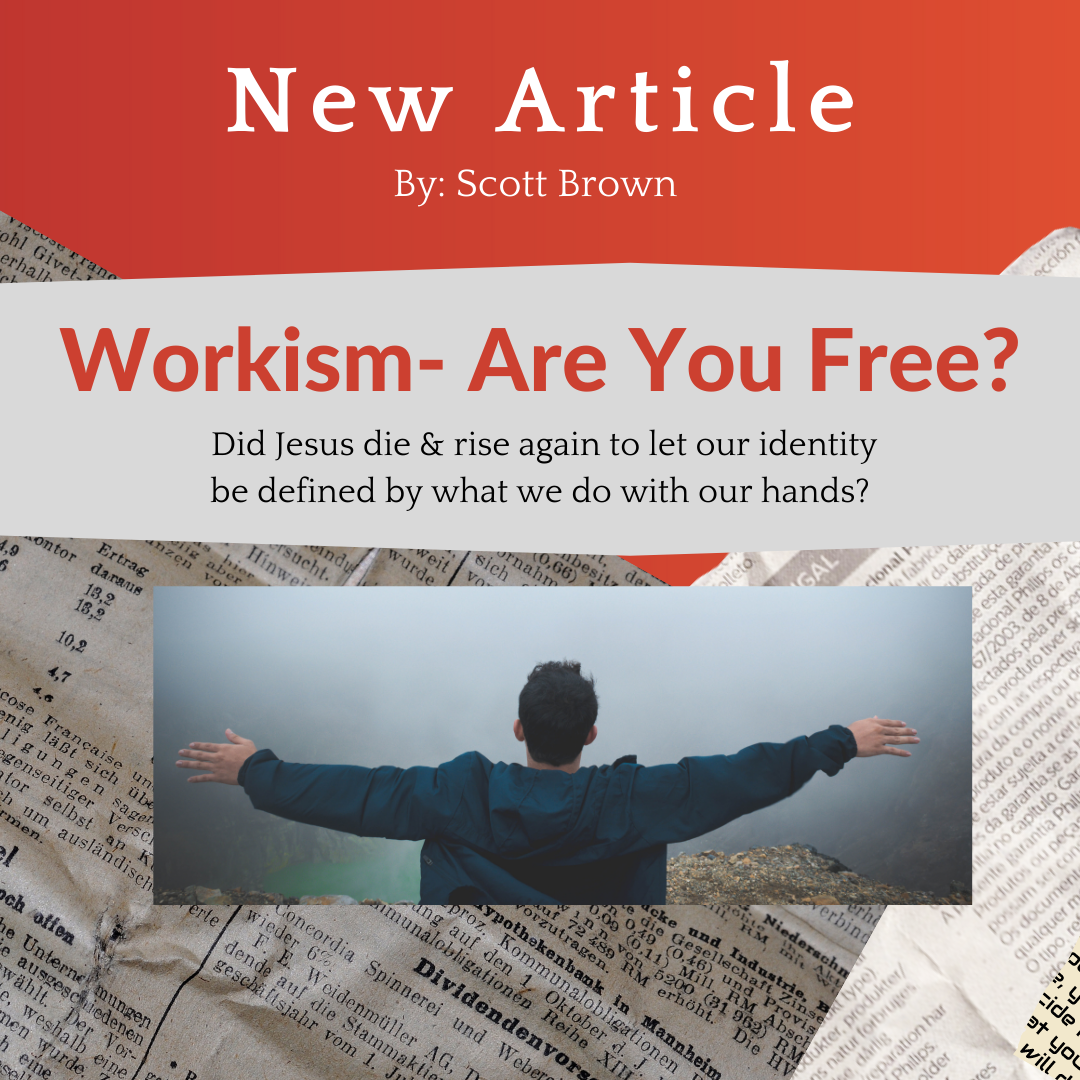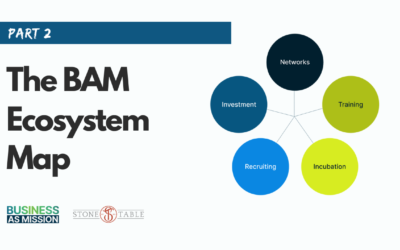Workism: Are You Free?

Work is powerful. On its own, it’s just work, but with the Lord involved, it becomes a lot more. Workism is also powerful. On its own, it’s just a concept, but when you engage your heart with it, it becomes a lot more.
Work is a function of the human creation – we were meant to work from day one. The Bible is littered with little tidbits of the function & place of work, starting in Genesis and rolling through the New Testament. There are even parts of Isaiah that allude to us still working in the new heavens & new earth! It must be important if the Bible continues to point to it.
Workism on the other hand is not mentioned in the Bible, but idolatry is. Workism is a dysfunctional relationship with work – like someone that cannot stop themselves from eating poptarts every morning. (Sorry, it’s just processed rubbish & refined sugar).
Workism is as if the person eating poptarts suddenly became identified as “the poptart guy” or “the poptart gal”. Yes, “gal”.

In this case, their frequent devouring of poptarts begins to become an identifying factor of who they are. In the same way, our dysfunctional overuse of work can become an identifying factor of who we are, and that’s where we end up in workism.
Servant or Free
I recently preached a message at Granite Falls Assembly of God in Granite Falls, MN on Romans 6:6-7 (see their Facebook for the message). In these passages of Scripture, Paul writes things like, “we are no longer slaves to sin” and “we were set free from the power of sin”. These are powerful truths to overlook, so I wanted us to dive a little deeper into their meaning and cultural context at the time of their writing.
At the time, a slave in a Roman household had zero rights. They were absolutely subject to their master and, whatever the master said, they had no choice but to obey. In the same way, we were once subject to sin – we had no choice but to obey sin. Yet, when Jesus gave His life on our behalf, He was crucified once for all to sin, meaning that sin lost its power at the cross of Calvary. (This is shown throughout Romans 6, so read that for further study).
Strangely, though, as we examine the concept of workism, we find that even in practicing that, we once again put ourselves into subjection under something that has no true power over us. Our work!
While the promises that come with workism may seem pretty, things like life meaning, holistic fulfillment, and greater respect, it does not deliver. Rather, workism puts us under the subjugation of our own work, making our work our master. Isn’t that weird?

The Bible would say it’s weird.
In Genesis 1, when God makes us in His own image, we read,
“Let us make man in our image, after our likeness. And let them have dominion over the fish of the sea and over the birds of the heavens and over the livestock and over all the earth and over every creeping thing that creeps on the earth.” (Genesis 1:26).
Isn’t that something? We were meant to have dominion over all of these things, not be dominated by them. Yet, what is workism? It’s domination by our own work, where we let our work define us.
Further, in Genesis 2, God gave us as humankind the task to work the garden. Genesis 2:15 reads, “The LORD God took the man and put him in the garden of Eden to work it and keep it.” Homeboy was meant to be working! We (man & woman) were meant to have dominion over creation, not be dominated by it. This includes our work.
Given that, I think the Bible would agree that it’s a weird vibe to let our work dominate our lives. Seems… counter-Gospel-y. Did Jesus die & rise again to let our identity be defined by what we do with our hands?
Yet, again, what is workism? Allowing ourselves to be defined by our productivity.
Man, do you guys know how weird it was to be finished with my year of school? I just finished my junior year here at NCU and it was uncomfortable to be done. We as students spend the majority of nine months getting our heads ground into books, tests, papers, reports, and other various tasks, and then, all the sudden, its done. Right at the peak of our yearly stress, finals week, the workload breaks. Imagine how uncomfortable I was when I woke up on Friday morning with no plans for the day. It wasn’t chill, it was weird. I was wired from the past few weeks of preparing sermons, preaching, writing papers, studying, taking finals, and doing other life things, and then, all the sudden, it was gone. Just like that. Done.
Workism is still applicable for students. If I let myself be defined by my productivity, which I have before, then rest feels unholy.
Read that again.
Has your rest felt unholy? Has it even happened recently?
The reason I can ask this is because I’ve had these same challenges in my life. I’ve struggled with rest. Workism is not partial in its affliction – it is a pandemic sin that reaches people all over the world.
If you are uncomfortable resting, there is a solid chance you’ve got a fat investment banked into your level of productivity. What that means is, you have a huge chunk of who you are rooted into how much you can produce. This is workism.
So, let me ask you then, if you are subject to your own productivity, who exactly is master of whom?
Two Masters
One of my favorite chapters in the Gospels, and possibly Scripture, is Matthew chapter 6. Jesus is mid-way through the Sermon on the Mount and He begins a delightful section on trusting God for our provision by stating,
“No one can serve two masters, for either he will hate the one and love the other, or he will be devoted to the one and despise the other. You cannot serve God and money.” (Matthew 6:24).
What does this text have to do with workism? Well, I’m glad you asked.
Jesus states that “no one can serve two masters”. This gives us context to examine which master we are serving – whether God or money. The Greek word for “money” in this verse is “mammon”, transliterated from an Aramaic word meaning riches, money, possessions, or property. This “mammon” is also described by some commentators as “the treasure a person trusts in”.
Where is our trust today?
Workism will lead us into trusting in our possessions, trusting in our wealth, and therefore trusting in our role at work to keep us sane, sound, and safe. When we trust, i.e., put our faith into, our work as our provider, we trust our work over our God. This is workism, and a plain form of idolatry.
Let’s return to God today. Let’s allow our hearts to be filled with His peace, replacing the sense of productivity-salvation that workism promises. When we put our trust in God, we receive rest. May we be a well-rested Church.


